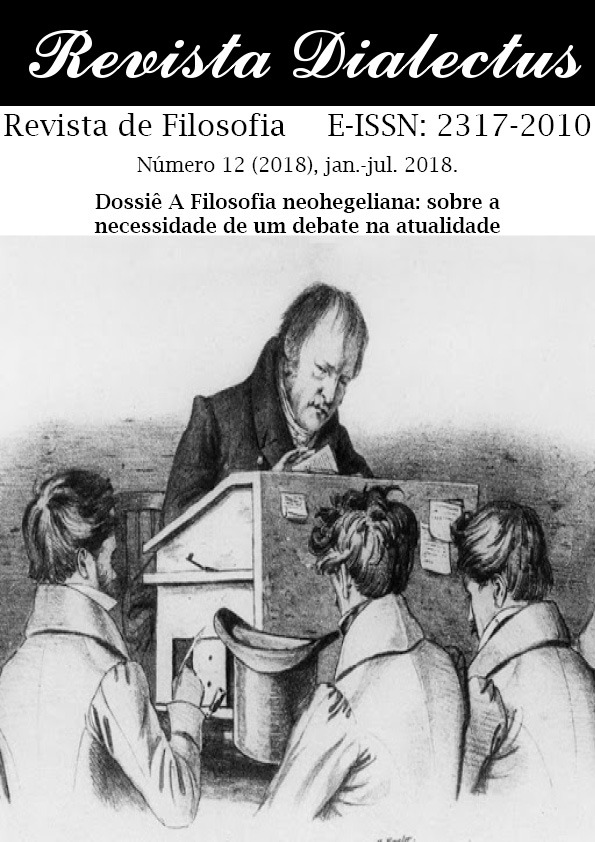MARX E O FETICHE DA MERCADORIA DINHEIRO
DOI:
https://doi.org/10.30611/2018n12id33206Keywords:
Karl Marx (1818-1883). Fetiche da mercadoria. Crítica da metafísica.Abstract
Nosso artigo pretende mostrar que a crítica do fetiche da mercadoria em Karl Marx deve ser associada à crítica metafísica da mercadoria porque, segundo Marx, uma das características centrais da metafísica é a inversão dos polos concreto e abstrato e sensível e suprassensível em prol da autonomização do abstrato e do suprassensível e sua conversão em polos absolutos. Assim como na Metafísica e na religião cristã a ideia-abstrata e o deus-abstrato dominam o concreto e o sensível da vida humana, no mercado a riqueza-abstrata do dinheiro domina o mundo da riqueza concreta e sensível diariamente consumida pelo homem.References
FEUERBACH, Ludwig. A essência do cristianismo. Campinas S.P: Papirus, 1988.
MARX, Karl. Para a crítica da economia política. Coleção: Os Pensadores. São Paulo: Nova Cultural, 1987.
_____. O Capital: crítica da economia política. Livro I. Volume I. Tradução de Regis Barbosa e Flávio R. Kothe. 3ª edição. São Paulo: Nova Cultural, 1988.
_____. Grundrisse: elementos fundamentales para la crítica de la economia política [borrador 1857-58]. Volume I. 15ª edição. México: 1987.
Downloads
Published
2018-07-30
Issue
Section
Dossiê A Filosofia Neohegeliana: Sobre a Necessidade de um Debate na Atualidade
License
Authors who publish in this journal agree to the following terms:
- Authors retain the copyright and grant the journal the right of first publication, with the work simultaneously licensed under the Attribution-NonCommercial-NoDerivatives 4.0 International (CC BY-NC-ND 4.0) License, which allows the non-commercial sharing of work, without modifications and with acknowledgment of authorship and initial publication in this journal.
- Authors are authorized to take additional contracts separately, for non-exclusive distribution of the version of the work published in this journal (eg publish in institutional repository or as a book chapter), with acknowledgment of authorship and initial publication in this journal.
- Authors are allowed and encouraged to publish and distribute their work online (eg in institutional repositories or on their personal page) at any point before or during the editorial process, as this can generate productive changes as well as increase the impact and citation of published work (See The Free Access Effect).



















